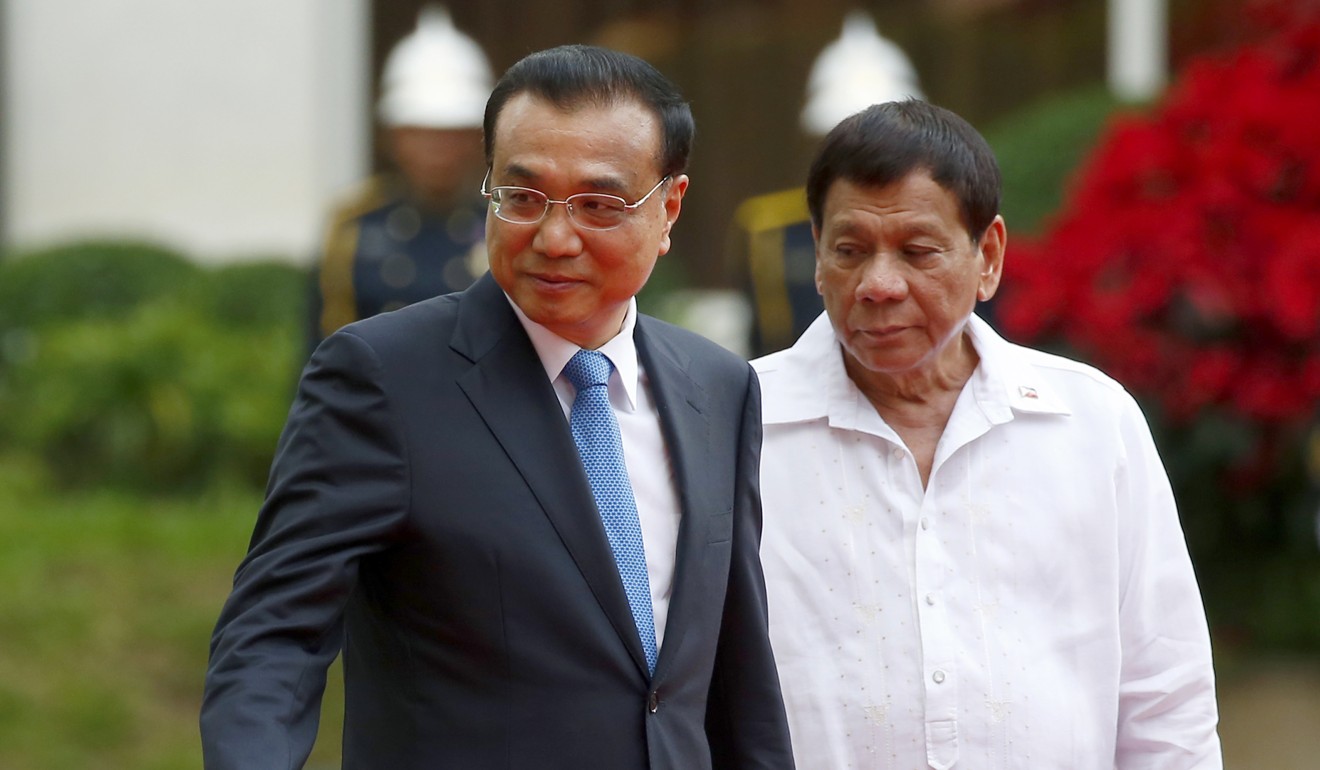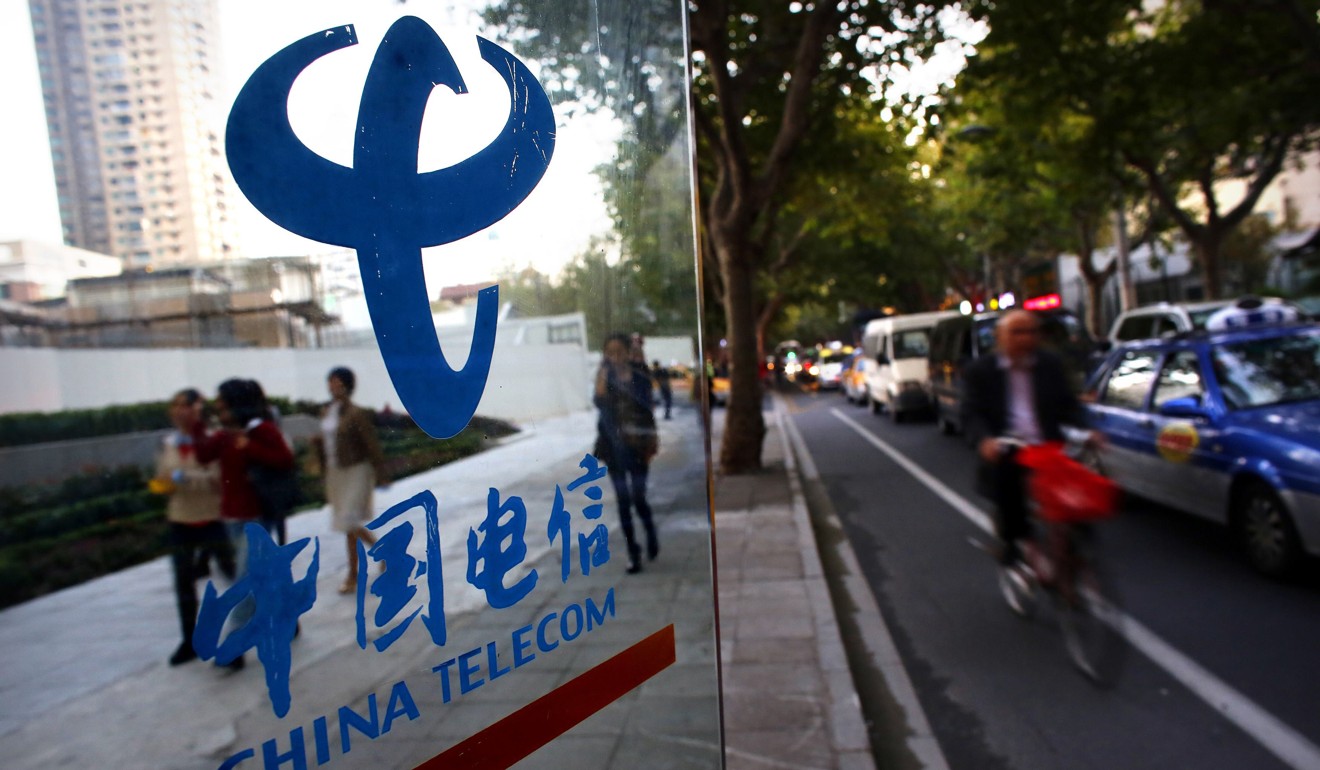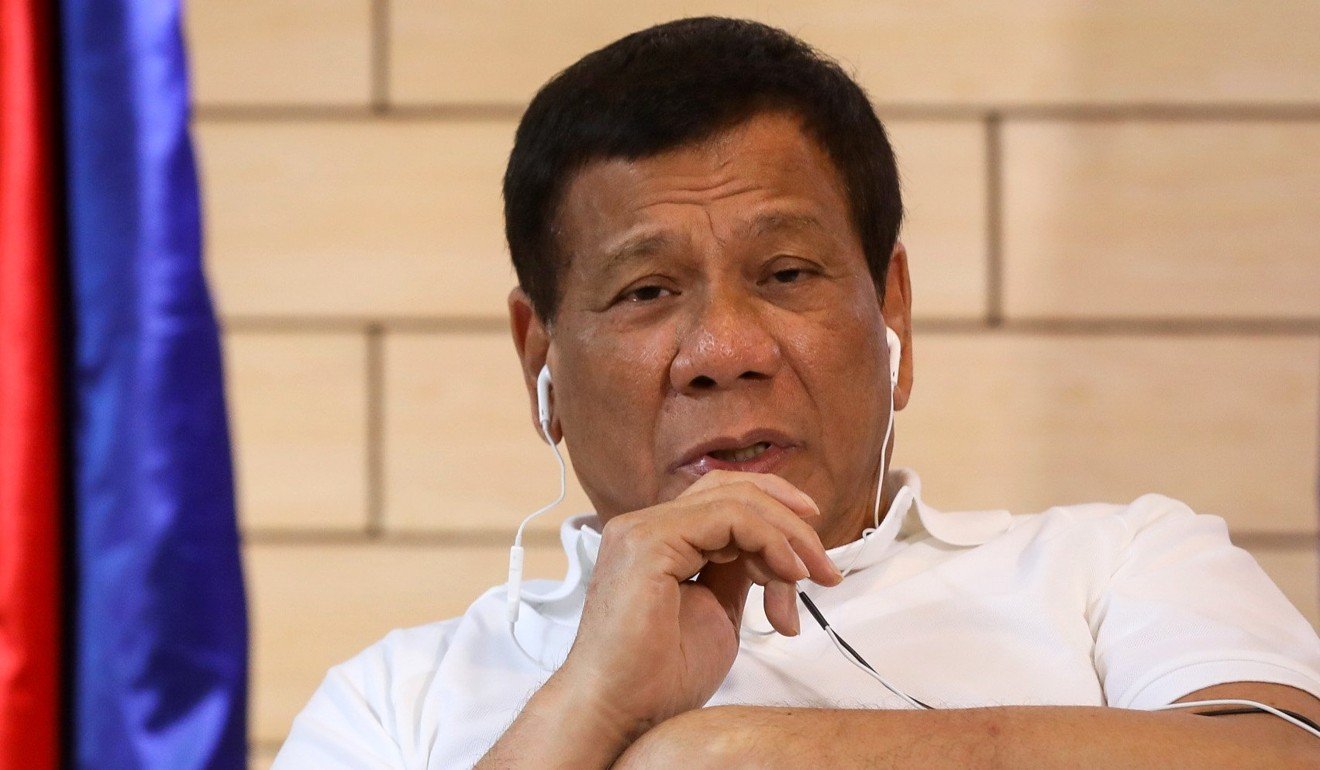
In Duterte’s Philippines, fears of slow internet trump fears of China
- In granting a licence to a joint venture backed by China Telecom, the Philippine leader is going against the grain
- But for social-media crazy consumers hampered by some of the slowest speeds in the region, national security isn’t the main concern

From super-wired Singapore to bandwidth-guzzling Indonesia, consolidation has become the No 1 buzzword in Southeast Asian telecoms circles, as the industry reels from crimping revenue streams and the seemingly unending capital expenses needed to keep up with the latest technology.
The consensus thinking is that, by reducing the number of players through mergers, the sector’s margins will improve, allowing it to face the hefty cost of rolling out the next-generation 5G technology without facing too much pain.
But in the Philippines, where social media-crazy consumers have for years been stuck with poor service under a duopoly, the government of President Rodrigo Duterte has gone against the grain by adding a new operator.
Dito Telecommunity – 40 per cent owned by China Telecom – this week formally received its licences and control of a chunk of spectrum across six radio-frequency bands.

The company, which is majority controlled by firms linked to Dennis Uy, a local tycoon and campaign donor of Duterte, has promised to light a fire under Globe Telecom and PLDT Inc.
The consortium was provisionally awarded the slot last year, and Uy signed the tie-up with China Telecom during the Belt and Road Initiative forum in Beijing in April.
The new telco is expected to accept new subscribers by the end of the year, and says it will offer mobile internet speeds that rival Singapore’s within two years.
The Philippines has some of the world’s most avid social media users – topping global usage charts, according to one study – but 4G speeds in the country of 105 million people are among the lowest in the 10-nation Asean (Association of Southeast Asian Nations) region.
Industry observers say they will be keeping tabs on just how much adding a new operator will raise standards.
While Globe Telecom and PLDT have pumped hundreds of millions of dollars into boosting reliability, standards until now have remained notoriously patchy. Analysts blame a combination of red tape impeding infrastructure improvements and the ever rising costs of debuting new technology – from 3G to 4G and soon to 5G – that the companies have had to bear.
“Handing out a new licence goes against the regional trend,” said Prasenjit K. Basu, chief economist at CrossASEAN Research in Singapore.
“Malaysia and Singapore are seeing consolidation, which boosts margins for the surviving players – but adding additional telco providers would eat further into margins in the Philippines.”
FIRST OF MANY?
Piquing analysts’ interest is the role China Telecom will play in the new telco, and whether its involvement – this is one of just a handful of overseas deals Chinese telcos have signed in recent years – is a sign of more such joint ventures to come.
The Philippines venture is an eye-catching one because, while Chinese telcos have massive consumer bases – the largest mainland carrier China Mobile is also the world’s biggest – they have not been as active in overseas investments as industry peers such as Singtel, Vodafone or BT.
One major venture is China Mobile’s wholly owned subsidiary Zong in Pakistan, which is that country’s third-biggest telco. China Mobile also owns a stake in Thai mobile operator True Corp.
China’s No 2 carrier, China Unicom, has a cross-holding arrangement with Spain’s Telefonica.
China Telecom’s 40 per cent stake in Dito – the uppermost limit for foreign ownership of a Philippine telco – is held by the mainland-based China Telecommunications Corp (abbreviated as China Telecom), parent of the Hong Kong-listed China Telecom.
The joint-venture opportunity came after a 2017 meeting between Chinese Premier Li Keqiang and Duterte, during which the Philippine president said publicly that the country’s third telecoms player would be a firm with Chinese backing.

Edison Lee, a Hong Kong-based telecom analyst with Jefferies, said a “domestic focus” among the three Chinese carriers over the last 10 years was the main reason overseas deals had been few and far between.
Mark Natkin of the Beijing-based Marbridge Consulting said that the late 2000s shake-up of the Chinese telco scene – and the subsequent awarding of 3G licences – was one reason for this inward focus.
Also limiting overseas opportunities, especially in the case of China Mobile, Natkin said, was the Chinese government’s requirement that it used “China’s still-immature home-grown 3G standard, TD SCDMA”.
This hurt China Mobile’s “opportunity to amass greater experience operating large-scale 3G networks based on the standards used in the rest of the world”, he said.
While Beijing continues to emphasise building capacity at home, China Telecom’s Philippine venture probably came about as a way for the firm to support the Belt and Road Initiative, Lee said, referring to the Beijing masterplan to spend up to a trillion dollars to boost connectivity between itself and other countries in Eurasia.
And with Chinese telecom technology coming under the microscope in the West over security concerns, the Dito investment is seen as a vital vote of confidence in the sector from a friendly country.
Lee said another factor probably behind China Telecom’s foray into the Philippines – its first major overseas investment – was an internal assessment that returns were likely because of the duopoly that had been in force.

But questions remain over whether there will be further deals for the three Chinese telcos to latch on to, especially because most regional countries are looking to cut carriers rather than add them.
“It is unclear to me that this venture would pave [the way] for more deals … telcos regionally are struggling for growth [and] in the absence of clear drivers, many are looking to consolidate,” said Ramakrishna Maruvada, who heads Daiwa Capital Markets’ India and Southeast Asia telecom research division.
David Blennerhassett, an analyst who publishes on the Smartkarma business intelligence platform, said any future deals would probably be “politically charged in the current environment over perceived national security issues on Chinese telecom firms”.
‘BEST OFFER’
In the Philippines, where the average mobile internet speed of 7 Mbps lags far behind Singapore’s 39 Mbps and South Korea’s 50 Mbps, observers believe frustrated consumers longing for First World bandwidths are likely to view national security concerns as secondary.
Dito has promised to deliver 27 Mbps in a year, and 55 Mbps from its second year and beyond.
Astro Del Castillo, managing director of local finance and investment firm First Grade Finance, said he trusted the Duterte administration’s pledge that Dito was “really the best offer on the table”.
“From an economic point of view, if you look at the business ventures of the Chinese telcos and other Chinese-related companies, they are really aggressive in investing not only in telecommunications but also in other business ventures,” said Del Castillo. “So it is a wise move … from an economic point of view, yes.”
Other Philippine analysts said they trusted that any national security threat arising from China Telecom’s involvement in Dito would be detected by the country’s newly formed Cybersecurity Management System.

The platform will be used to detect suspicious activity in telecom networks. Dito will be the first telco subject to the screening, which will be done in accordance with privacy rules. Globe and PLDT are expected to be included in it later.
For now, further Chinese telco forays into the Philippines seem unlikely. Still, analysts said the Dito deal suggested there could be more China-related joint ventures in other areas while Duterte is president.
The Dito deal – virtually handed to China on a plate by Duterte – is viewed by anti-Beijing hawks in Manila’s ruling elite as another sign he is giving too much to the superpower. The president says he is merely trying to be non-confrontational.
The two countries have had several run-ins because of their competing claims in the South China Sea, and after a recent incident in which a Filipino boat was sunk by a Chinese vessel, Duterte faced flak domestically for appearing to support Beijing’s position that it was an accident rather than a deliberate act.
Said Prasenjit, the Singapore-based economist: “I do expect more China-related joint ventures while Duterte is president. There is little downside for him, given that he cannot have another term. He has decided quite openly to align himself with China.” ■
Additional reporting by Jef Maitem